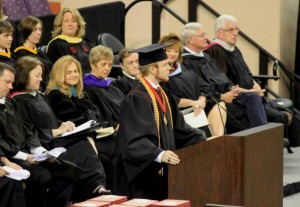Two weeks ago, China was caught up in state of troubling reflection as a national audience viewed a security camera recording of a small girl not only hit by a couple of passing motorists, but more disturbing, casually disregarded by all forms of human traffic. (Here’s an article explaining the horrific incident, with the security camera footage at the bottom. Warning, obviously, it’s graphic.) Like most parents, the sight of a defenseless child motionless in the path of oncoming traffic created no small personal disorientation. I was stunned as to why no one stopped to provide even the most basic form of assistance.
What triggers compassion? The range of answers is as vast as they are unspectacular. A televised famine appeal with doe-eyed children, Seeing my children hurt or disappointed, an emotive film or real life drama. That’s all easy enough. More difficult is discerning what keeps us from answering mercy’s call? What makes us drive by seemingly blind and deaf to another’s plight, especially when it is right in front of us?
Social scientists are quick to point out the 1964 tragic death of Kitty Genovese. Although still inconclusive as to how many neighbors actually heard her cries for help in the throes of a savage beating and her eventual murder, it’s clear that many heard her screams but did nothing. The public reaction seemed to sum up in one man’s callous reflection that after seeing the attack of the young Genovese, he delegated his response to another because he, “didn’t want to get involved.”
Jesus understood compassion deficiency, even shaping one of his hallmark stories around a beaten man left for dead (Luke 10:25-37). Although the master story-teller gave little clues as to why two religious personnel avoided “human decency” in coming to aid a busted stranger, plenty could be enumerated: dangerous road, religious code purity maintenance, overwhelming personal agenda. The fact remained, those that most expected to “step-up” to help… didn’t.
Why? Why the passing Chinese motorists? Why the silent Genovese neighbors? Why do I avoid eye contact with a certain street corner stranger with the hand-written cardboard that reads, “I’m homeless and hungry – need $$$?”
In grad school we reviewed a landmark study on compassionate action that observed the actions of 50 graduate students. Simply described, two groups were assigned in one place to complete a task across campus in another. Significant for the study, participating students in their journey from point A to point B would encounter a man who was described as “somewhat ambiguous-ill dressed, possibly in need of help, but also possibly drunk or even potentially dangerous.”.
Final outcomes gave researchers pause, as student after student moved right past the man needing assistance. More confounding was the fact that the students under review were seminary students from undeniably one of the top institutions in the country, Princeton Theological Seminary (as somewhat competitive graduate of another seminary, I probably take too much pleasure from announcing that fact).
One of the assignments the test subjects were asked to complete prior to their stranger encounter was to reflect on future job possibilities while the second group was to reflect on a parable Jesus told in the Gospel according to Luke…you guessed it – Like 10:25-37. Truth “is” stranger than fiction.
So what made the difference? Researchers found it was the degree of hurry subjects were in. Those students given an indeterminate amount of time to accomplish their task in many cases came to the aid of the stranger. Those who were intentionally rushed, did not.
What would it take for “me” to show compassion? What all the aforementioned stories of neglect had in common wasn’t intentional global disregard, some personal defective gene or sadistic bent. Simply, they all were driven to accomplish something else. Common compassion was deemed secondary.
In the circumference of my personal radar, who is in need of my assistance? What signs have I been neglecting? The study subjects sensitized and given time actually showed compassion to the stranger. As Jesus said to his audience, “go and do likewise.”












